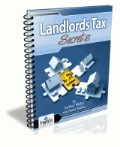Is CGT payable on the disposal of trust assets?
Question
We understand that trusts are tax efficient, legal entities to hold property in. We have been informed that there is also a Tax charge administered every 10 years of the Trusts life, and that should the Trustees dispose of assets that have been placed within a trust, then Capital Gains Tax is payable. Is this true? Arthur says: As a general rule, trusts should not be used for holding property unless there is a good reason for doing so. Under the new regime for inheritance tax (IHT) for trusts, most trusts are now classified as 'mainstream' and subject to a) chargeable lifetime IHT on entry (unless exempt due to the nil rate band), b) a ten year charge and c) an exit charge. Furthermore, if the trust is discretionary, the trustees are liable to income tax on the rental income at 40%, whereas a non higher rate taxpayer landlord would pay 22% income tax. The trustees are eligible only for half the capital gains tax (CGT) There is a tax advantage in owning property through a trust, where the individual would have paid 40% income tax on the rental income had he owned it personally, but because it is owned by an interest in possession trust, the trustees only pay at 22%.
Case Study
|

To enrol in the 7 tax saving strategies email course complete the form below. The first module will be emailed to you immediately.

 UK Property Tax Q&A
UK Property Tax Q&A
